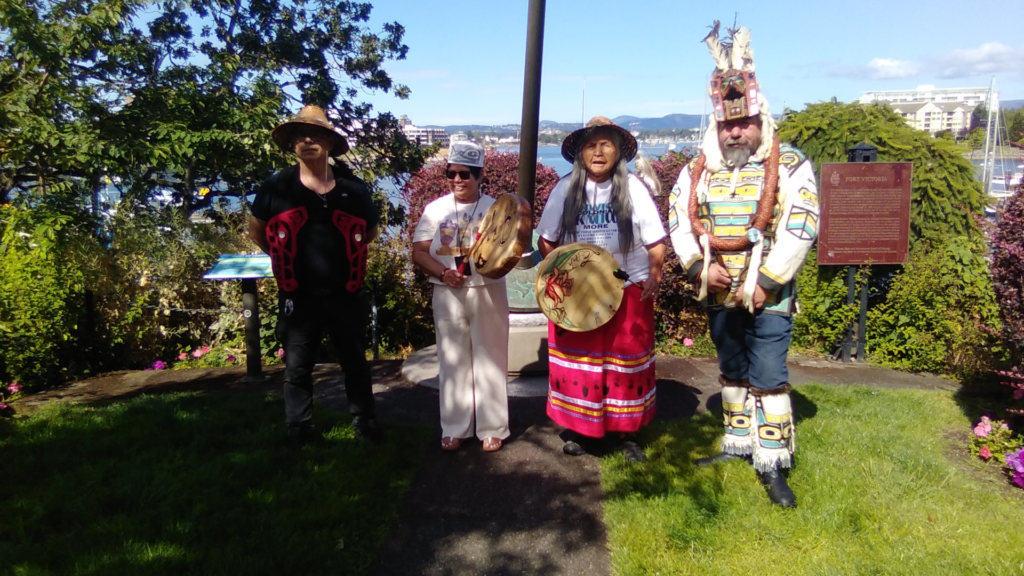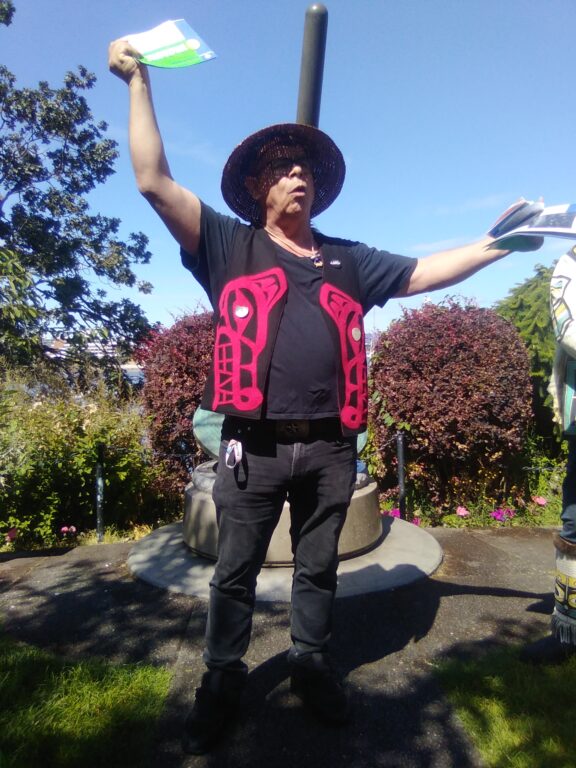Hereditary Chiefs Rise in Defence of Douglas Treaties
Have a glance into the rift between hereditary indigenous leaders and Indian Act band councils, and the complex politics fuelling the turmoil since the early days of the colonisation.

A group of hereditary chiefs rallied at the site of Fort Victoria to denounce a modern treaty in its final negotiation stages that threatens to invalidate ancient treaties and traditional indigenous leadership.
Fort Victoria was chosen as the location because this is where the Douglas Treaties were signed around 1850. These would guarantee indigenous peoples the right to hunt and fish on their ancestral lands, and are nowadays perceived as the cornerstone of traditional indigenous leadership within Canada. Their defenders worry that any action against them by extension threatens their old growth forests, salmon stocks, traditional languages and culture, and by extension fuels crises such as homelessness and addiction disproportionately affecting indigenous people.
The rally was purposefully held on Canada Day, to stress the fact there is no love lost between hereditary leaders and the Canadian government. Hereditary Chief David Know of the Kwakiulth First Nation commented that while he loves Canada, he simply cannot stand its government, for using the Indian Act to undermine indigenous leadership and values.
This recent dispute stems from the upcoming Te’mexw Treaty, backed by the Indian Act band councils but shunned by hereditary leaders. The rift between the factions, far from recent, has put them repeatedly against each other, for example at Fairy Creek where a faction behind Elder Bill Jones sided with protesters while the elected leadership instead asked them to leave.
Scott Clark of the Coast Salish S’Klallam Nation concluded the event by ripping a brochure of the Te’mexw Treaty Association, which he dismisses as yet another initiative put forward by the Canadian government without consulting hereditary leaders, for the obvious purpose of sidelining them. According to him, the only ones among his people backing the Indian Act band councils in embracing their own genocide and ecocide were doing so out of self-interest, not that of their people.

Discover more from Rulebreakers
Subscribe to get the latest posts sent to your email.



